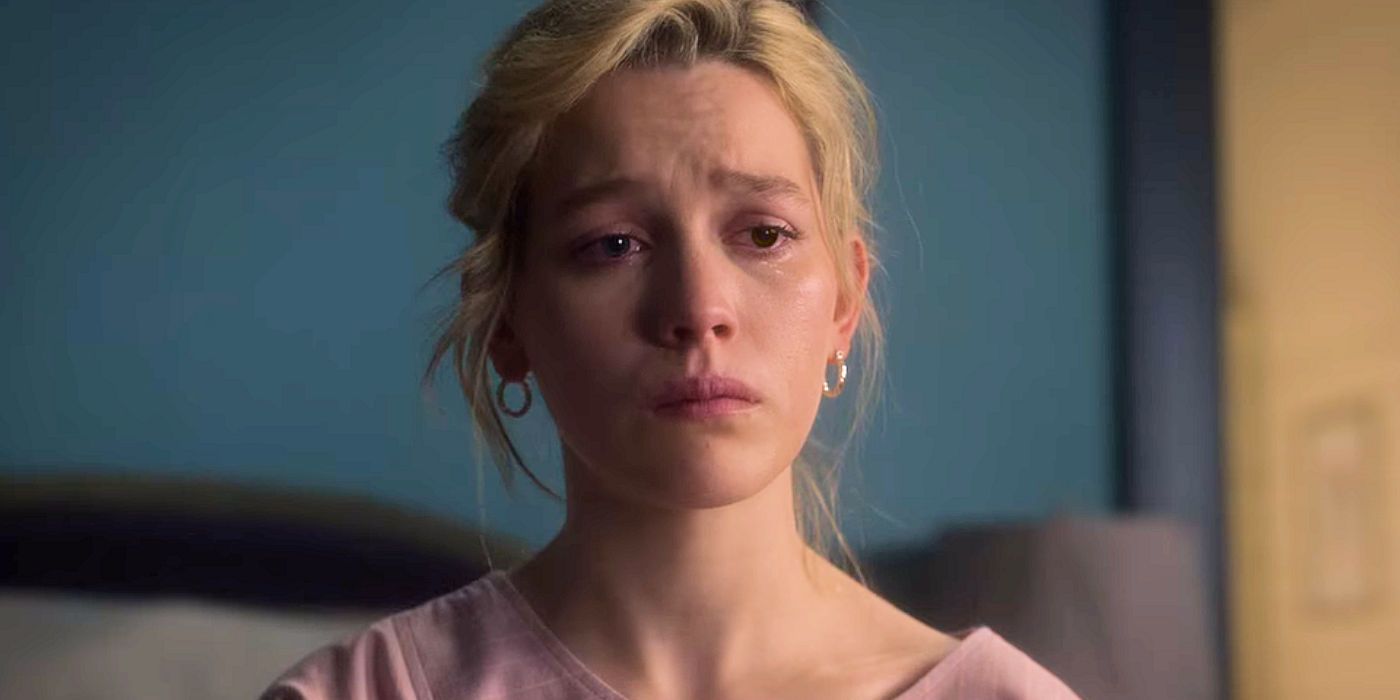Queer Tragedy in THE HAUNTING OF BLY MANOR

I don’t know why brilliant young women are always punished
Hannah Gross
The Haunting of Bly Manor
Episode 4: The Way It Came
June slowly closes in on me until it’s official. Toronto Pride is effectively cancelled for the second year in a row. Instead of partying in the streets with my friends, I’m in near-complete isolation and sequestering with my one-year-old puppy Henry. So I guess I’m not totally alone. Still, I couldn’t let the month fully slip away without watching my fair share of queer horror, now could I? My list of content this year included The Hunger, Black Swan, The Perfection and my first rewatch of The Haunting of Bly Manor.

One of the best horror series of 2020 was also one of its queerest. The Haunting of Bly Manor is the Netflix series based on the 1898 Henry James novella “The Turn of the Screw” by creator Mike Flanagan.
Warning, spoilers:
Bly Manor’s protagonist is Dani, a young woman played tragically by Victoria Pedretti (You S2). Dani works as an American au pair for two orphaned children at Bly Manor, a great estate nestled deep into the gothic English countryside. Jaime, the love of Dani’s life, narrates the action from twenty years in the future. She frames the series by sharing a ghost story during the final hours of a wedding. Jamie’s ghost story is about Bly Manor, a house that would introduce her to Dani, but also take her away.

In 2016 Autostraddle began their tally of queer female characters killed off in major English-language television shows. Since then, this ongoing list has counted a whopping 214 deaths. Due to the blatant underrepresentation of queer women on scripted television, this number is staggering. For those interested, here’s a rundown of every horror-genre title that made the list:
True Blood, Buffy, Supernatural, Charmed, American Horror Story, Hemlock Grove, The Walking Dead, Teen Wolf, Under the Dome, The Vampire Diaries, Salem, Scream, The Magicians, The Exorcist, Van Helsing, Doctor Who, Slasher, The Purge, You, and Castle Rock.
The Haunting of Bly Manor participates in the Bury Your Gays trope just as blatantly as any of the above examples. So what’s with my urge to apologize on its behalf?
A follow-up to the hit 2018 Netflix horrorshow The Haunting of Hill House, Bly Manor’s initial praise seemed somewhat tepid. Many viewers felt the show had become far too romantic, without offering nearly as many scares as its predecessor. These fans, I’m sorry to say, are coming in both strong and wrong. The Haunting of Bly Manor is the scarier series of the two. Bly explores a route into the depths of fear far less travelled than Hill House did — and it pays off. It’s just too bad Bly has to drown queer happiness in its murky waters.

On the rare occasion that queer women are permitted screen time, they almost always pay for this visual real estate with their lives. Fifty years after the demise of the Hays code, Hollywood is still torturing its queer characters as punishment for their existence. Television is still unable to permit its queer characters — namely its queer women — the same joys and experiences afforded by their straight counterparts. While queer representation has become more prominent in horror, queer women’s stories are rarely front and centre. And when they are, they’re likely not alive for long.
She would sleep, she would wake, she would walk
The Haunting of Bly Manor
Episode 8: The Romance of Certain Old Clothes
Bly Manor’s main antagonist is Viola (or The Lady of the Lake). The Romance of Certain Old Clothes, a standout episode, explores her horrible origins. Serving as the show’s secret weapon, Viola is arguably a queer-coded character. Forced into heteronormativity to keep the deed to Bly Manor, she does what’s necessary to keep her home. She also fervently holds onto anything that belongs to her… including her own life. By sheer strength and willpower, Viola is able to refuse death at the hands of the 17th-century plague. Unfortunately, the consequences she endures for this stubbornness are unfathomable.

Like with many other female characters, Viola’s strength and power is ultimately punished to the full extent of the proverbial law. The Lady of the Lake’s suffering eventually extends into the suffering of both Dani and Jaime. Viola unwittingly steals away years of queer happiness so that Dani can be properly martyred, saving the lives of children in the process. This martyrdom is a fate shared by so many other characters on Autostraddle’s endless list of doomed queer women in television.
Change does not often announce itself. It does not trumpet its arrival … By the time one realizes it has arrived, it has already set its teeth
The Haunting of Bly Manor
Episode 8: The Romance of Certain Old Clothes
As a white, queer, cis-man, I’m beginning to reap the privilege of proper media represenation. I can turn on the television to see someone like me finding happiness, not just suffering and consequence. Queer women are not yet afforded this same privilege. While horror so rarely affords it’s characters happy endings, its queer women are often deserving of them. I know Dani was. She played by every rule in the gothic horror trope handbook and was still unable to find happiness in the end.
If it weren’t for the frighteningly prevalent Bury Your Gays trope, Bly Manor offers a magnificent ending; heartbreaking, rewarding, original, and very scary. Much like the rest of the series.

While I wasn’t able to celebrate Pride Month this year in the ways I had hoped, staying in wasn’t all bad. I’m spending lots of quality time with my puppy Henry, who has quickly become the one true love of my life. He’s already one year old now, and absolutely loves all of the quality time we’re getting together. Not to mention all of the extra walks he gets every day. Hopefully, next June will bring back with it some queer happiness. Because I could really use some.
Until then… I’ll sleep.. and I’ll wake… and I’ll walk Henry…
Categorized:Editorials News

